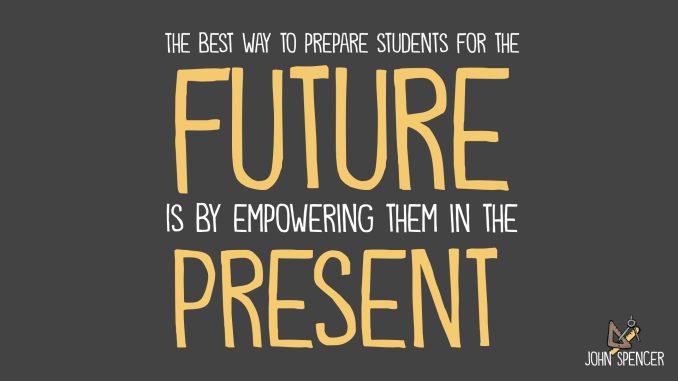
Preparing students for an unpredictable future is no longer a theoretical exercise—it’s a practical necessity. The pace of change across industries, technologies, and global dynamics has made it clear that the skills and mindsets students develop today must be flexible enough to meet challenges we can’t yet define. Traditional education models, built around static curricula and standardized assessments, are increasingly out of sync with the realities of a world that values adaptability, creativity, and resilience. To truly equip students for what lies ahead, educators, institutions, and policymakers must rethink not just what is taught, but how learning is approached.
One of the most critical shifts involves moving away from content-heavy instruction toward skill-based development. While foundational knowledge remains important, it’s the ability to apply that knowledge in novel contexts that will distinguish future-ready learners. Critical thinking, problem-solving, and collaboration are no longer soft skills—they are survival skills. A student who can analyze a situation, ask the right questions, and work effectively with others will be better prepared to navigate uncertainty than one who simply memorizes facts. In business environments, this translates into employees who can pivot quickly, contribute to cross-functional teams, and innovate under pressure.
Technology plays a dual role in this transformation. On one hand, it is a driver of unpredictability, constantly reshaping industries and job roles. On the other, it is a powerful tool for learning and exploration. Students must be taught not just how to use technology, but how to think critically about its implications. Digital literacy, data fluency, and ethical reasoning are essential components of a modern education. For example, understanding how algorithms influence decision-making or how data privacy affects consumer behavior prepares students to engage thoughtfully with the digital world. In business, these competencies are increasingly tied to strategic decision-making and risk management.
Equally important is fostering a mindset of lifelong learning. The idea that education ends with graduation is obsolete. Students must be encouraged to see learning as a continuous process, one that evolves with their interests, careers, and the world around them. This requires cultivating curiosity, self-direction, and the ability to learn independently. A student who knows how to identify gaps in their knowledge, seek out resources, and apply new insights is well-positioned to adapt to changing circumstances. In the workplace, this translates into professionals who are proactive, agile, and capable of reinventing themselves as needed.
Resilience is another cornerstone of future readiness. The unpredictability of the world means that setbacks are inevitable. Students must learn how to cope with failure, manage stress, and maintain motivation in the face of adversity. This emotional intelligence is often developed through experience—through projects that don’t go as planned, through constructive feedback, and through reflection. Educators who create environments where mistakes are seen as learning opportunities help students build the psychological tools they’ll need in high-stakes, fast-moving contexts. In business, resilience is what enables teams to recover from disruption and continue moving forward.
Interdisciplinary learning also plays a vital role. The problems of the future will not fit neatly into subject silos. Climate change, global health, and technological ethics all require knowledge that spans science, economics, sociology, and beyond. Encouraging students to make connections across disciplines fosters holistic thinking and prepares them to tackle complex challenges. A student who understands both the technical and human dimensions of a problem is more likely to develop solutions that are innovative and sustainable. In business, this kind of thinking supports strategic planning, stakeholder engagement, and long-term value creation.
Global awareness and cultural competence are increasingly essential. As the world becomes more interconnected, students must be able to navigate diverse perspectives and collaborate across borders. This involves not just language skills, but an understanding of cultural norms, historical contexts, and global systems. Exposure to international issues, cross-cultural dialogue, and collaborative projects helps students develop empathy and adaptability. In business, these skills are critical for managing global teams, entering new markets, and building inclusive organizations.
Educators themselves must be supported in this shift. Preparing students for an unpredictable future requires teachers to be learners too—to stay current with emerging trends, to experiment with new pedagogies, and to model adaptability. Professional development, peer collaboration, and institutional support are key to enabling educators to lead this transformation. When teachers are empowered to innovate, they create classrooms that are dynamic, responsive, and aligned with the needs of the future.
Ultimately, preparing students for an unpredictable future is about more than curriculum reform—it’s about cultivating human potential. It’s about helping learners become thinkers, creators, and leaders who can navigate ambiguity with confidence and purpose. It’s about building educational systems that are resilient, inclusive, and forward-looking. And it’s about recognizing that the future is not something to be feared, but something to be shaped—by students who are equipped not just with knowledge, but with the mindset to use it wisely.